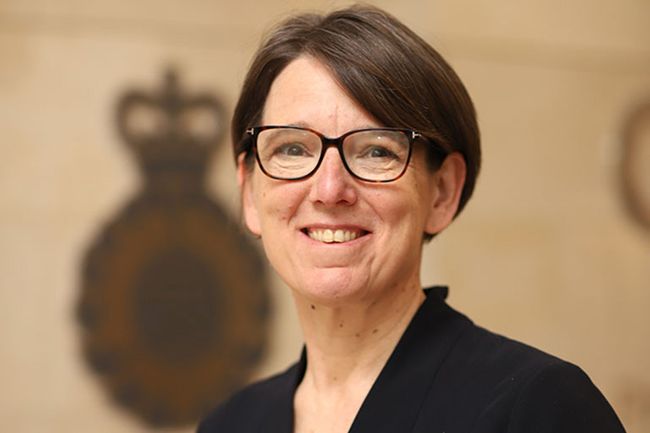It was revealed this week that Anne Keast-Butler has been appointed as GCHQ’s first female Director. The cyber-security and intelligence agency was previously headed-up by Sir Jeremy Fleming, however he announced in January that he was to step down after six years in the job.

The recruitment process to replace Sir Fleming was run by Cabinet Secretary Simon Case, and also involved was the Foreign Secretary, James Cleverly. He said that Keast-Butler was the “ideal candidate” to take the role. Prior to this role, Anne has been working as the deputy director of MI5, where she has been responsible for operational, investigative and protective security work. MI5 is often described as the UK’s ‘domestic intelligence service’, working primarily on reducing the UK’s national security vulnerabilities.
When announcing the appointment, James Cleverly said:
“Anne Keast-Butler has an impressive track record at the heart of the UK’s national security network, helping to counter threats posed by terrorists, cyber-criminals and malign foreign powers. She is the ideal candidate to lead GCHQ, and Anne will use her vast experience to help keep the British public safe.”
Anne is delighted to take such an important role and sees this as a natural step in her cyber security career:
“GCHQ’s mission to keep the UK safe is as inspiring today as it was when it was founded more than 100 years ago, operating at the very heart of the UK and our allies’ response to some of the most challenging issues of our time. In just the last year GCHQ has contributed vital intelligence to shape the West’s response to the illegal Russian invasion of Ukraine; helped disrupt terrorist plots; and worked tirelessly to tackle the ongoing threat of ransomware, the impact of which costs the UK dearly.
“I was privileged to work in GCHQ a few years ago, so I know I am again joining a world-class team of people from diverse backgrounds with a broad range of skills, who share a singular focus on making our country safer, more secure, and more prosperous. I am passionate about continuing to ensure that GCHQ is an organisation where everyone can perform to their very best.
“I am so grateful for the vision and dedication Sir Jeremy Fleming has shown during his tenure, and the ways in which GCHQ has transformed under his leadership. I look forward to building on this in the months and years to come. I can’t wait to get started.”
GCHQ is a cyber-security and intelligence agency, whose work focuses on identifying, analysing and disrupting threats to the UK. Much of the work done by GCHQ is influenced and set by the Prime Minister. They played a big role in the response to the COVID-19 pandemic, and now much of the work they are doing is in relation to the Russia – Ukraine conflict. GCHQ operates by employing three different capabilities (collection,analysis and effects) across five different mission areas; counter terrorism, cyber security, strategic advantage, serious & organised crime, and support to defence.
In its 104-year history, GCHQ has never had a female director, so this is incredible news for the role women play in cyber security. Anna Brailsford, CEO of Code First Girls has described this as “a momentous moment for women’s representation”. Cyber security is one of the world’s fastest-growing sectors of technology, with the UK’s cyber security market being worth £8.3bn alone. Currently, women make up around 24% of the workforce, which is less than the overall 26% female makeup of the technology sector. The news of Anne Keast-Butler being appointed as the lead at GCHQ will do huge amounts for inspiring younger generations of girls to consider cyber security, as having such a clear role model in arguably one of the most important companies in the sector is key.
Women in Tech have been working with GCHQ to help increase the number of females in their tech teams. To see their current opportunities, visit their profile on Women in Tech jobs here.






